The automotive landscape is witnessing a remarkable shift towards electrification, with manufacturers racing to develop innovative electric SUVs. Among the offerings, the Lexus RZ and the Toyota bZ4X stand out as compelling options. Both vehicles share a common lineage, but they cater to different segments of the market with their unique design philosophies and technical specifications. In this article, we will compare the two models across various parameters to help you decide which electric SUV fits your needs best.
Lexus RZ vs Toyota bZ4X - Differences and prices compared
Compare performance (313 HP vs 343 HP), boot space and price (47600 £ vs 36800 £ ) at a glance. Find out which car is the better choice for you – Lexus RZ or Toyota bZ4X?
Design and Dimensions
Starting with dimensions, the Lexus RZ measures 4805 mm in length, 1895 mm in width, and 1635 mm in height. In contrast, the Toyota bZ4X is slightly smaller at 4690 mm long, 1860 mm wide, and 1600 mm high. The Lexus's larger size translates to a more substantial presence on the road, but the bZ4X offers a sporty and sleek silhouette that appeals to a different demographic.
Performance and Powertrain
When it comes to power, the Lexus RZ boasts a robust 313 HP and a torque of 432 Nm, allowing it to accelerate from 0 to 100 km/h in a brisk 5.3 seconds. Meanwhile, the bZ4X offers two versions, with power ratings of 204 HP and 218 HP, respectively. The quicker of these variants can achieve 0-100 km/h in just 6.9 seconds, which is impressive but still a step behind the RZ.
Both models come with automatic transmissions featuring a reduction gearbox. The RZ is equipped with an all-wheel drive (AWD) system, enhancing traction and stability. The bZ4X, on the other hand, offers both front-wheel drive (FWD) and AWD options, providing flexibility based on driver preference and driving conditions.
Electric Range and Efficiency
In terms of efficiency, the bZ4X leads the pack with a consumption rate ranging from 14.4 kWh/100km to 16.2 kWh/100km, depending on the configuration. The bZ4X offers an impressive electric range of 513 km for the FWD variant and 461 km for the AWD model. The RZ, with an efficient consumption of 16.8 kWh/100km, provides a somewhat lower range of 439 km. This means the bZ4X could potentially minimize the frequency of charging stops on long drives.
Interior Comfort and Technology
Both SUVs seat five passengers, but the Lexus RZ offers a more luxurious experience with premium materials and a design focused on comfort and sophistication. The trunk capacity of the RZ is also larger at 522 liters compared to the bZ4X's 452 liters, making it better suited for families or those requiring extra cargo space.
In terms of technology, both models are equipped with modern infotainment systems, although the Lexus may have a slightly edge with its advanced navigation and driver-assistance features, appealing to those who prioritize luxury and high-tech integrations.
Environmental Credentials
Both vehicles achieve a CO2 efficiency class of A, which illustrates their environmentally friendly credentials. The key differentiator lies in their curb weights; the Lexus RZ weighs in at 2130 kg, while the bZ4X ranges from 1970 kg to 2085 kg, depending on the configuration. A lighter vehicle typically contributes to better efficiency and performance. However, the additional weight of the RZ is offset by its more powerful electric motors.
Final Thoughts
The Lexus RZ and Toyota bZ4X are both exceptional representatives of the electric SUV segment, tailored to different preferences and needs. The Lexus RZ excels in luxury, performance, and technology, appealing to those who want a premium driving experience. The Toyota bZ4X stands out for its efficiency, range, and practicality, making it ideal for environmentally conscious everyday users.
Ultimately, the choice between the two will depend on individual priorities, whether that’s performance and luxury or efficiency and value. As the automotive industry continues to evolve, both models showcase the potential of electric vehicles in an increasingly competitive market.
Here’s where it gets real: The technical differences in detail
Costs and Efficiency:
Looking at overall running costs, both models reveal some interesting differences in everyday economy.
Toyota bZ4X has a clearly perceptible advantage in terms of price – it starts at 36800 £ , while the Lexus RZ costs 47600 £ . That’s a price difference of around 10800 £.
In terms of energy consumption, the advantage goes to the Toyota bZ4X: with 13.50 kWh per 100 km, it’s somewhat more efficient than the Lexus RZ with 14.90 kWh. That’s a difference of about 1.40 kWh.
As for electric range, the Toyota bZ4X performs noticeable better – achieving up to 568 km, about 139 km more than the Lexus RZ.
Engine and Performance:
Power, torque and acceleration say a lot about how a car feels on the road. This is where you see which model delivers more driving dynamics.
When it comes to engine power, the Toyota bZ4X has a slight edge – offering 343 HP compared to 313 HP. That’s roughly 30 HP more horsepower.
In acceleration from 0 to 100 km/h, the Toyota bZ4X is slight quicker – completing the sprint in 5.10 s, while the Lexus RZ takes 5.30 s. That’s about 0.20 s faster.
There’s also a difference in torque: Lexus RZ pulls clearly perceptible stronger with 432 Nm compared to 338 Nm. That’s about 94 Nm difference.
Space and Everyday Use:
Beyond pure performance, interior space and usability matter most in daily life. This is where you see which car is more practical and versatile.
Both vehicles offer seating for 5 people.
In curb weight, Lexus RZ is hardly perceptible lighter – 1955 kg compared to 2014 kg. The difference is around 59 kg.
In terms of boot space, the Lexus RZ offers slightly more room – 522 L compared to 452 L. That’s a difference of about 70 L.
When it comes to payload, Lexus RZ distinct takes the win – 685 kg compared to 451 kg. That’s a difference of about 234 kg.
Who wins the race in the data check?
The Toyota bZ4X is narrowly ahead in the objective data comparison.
This result only shows which model scores more points on paper – not which of the two cars feels right for you.
Costs and Consumption
View detailed analysis
Engine and Performance
View detailed analysis
Dimensions and Body
View detailed analysis
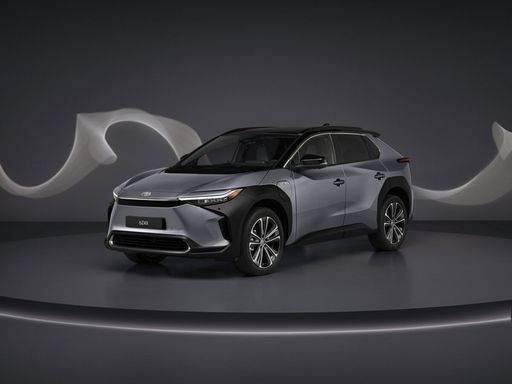
Toyota bZ4X
Lexus RZ
The Lexus RZ brings Lexus' trademark quiet luxury to the electric SUV world, wrapping poised handling and a plush, well-crafted cabin in a calm, composed package. It won't shout about raw figures — instead it trades headline numbers for smooth power delivery, fuss-free tech and an effortless refinement that will suit buyers who want electric convenience without losing the luxury experience.
details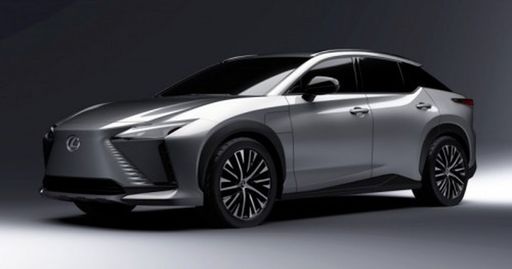
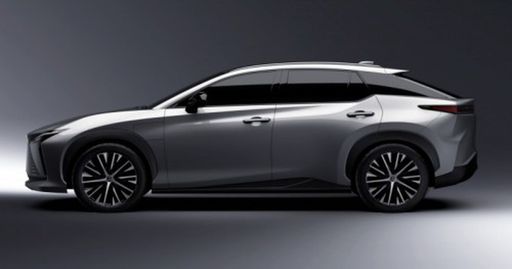
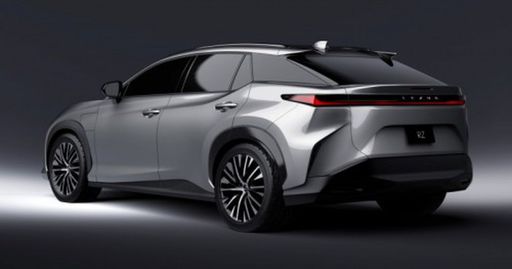
Toyota bZ4X
The Toyota bZ4X is a fresh, roomy electric crossover that pairs Toyota’s trademark reliability with bold, angular styling and a cabin designed for everyday comfort. It may not chase headlines like some flashier rivals, but for buyers who want sensible electric motoring with practical packaging and a relaxed, confident ride, it’s an easy, pleasant choice.
details
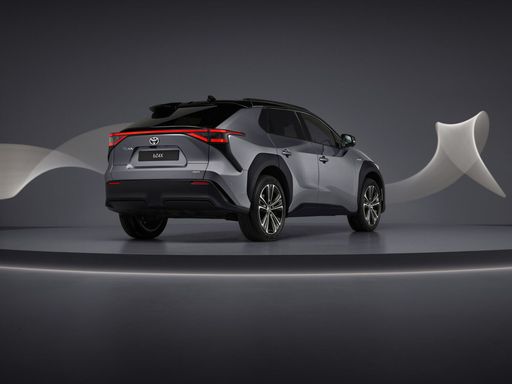
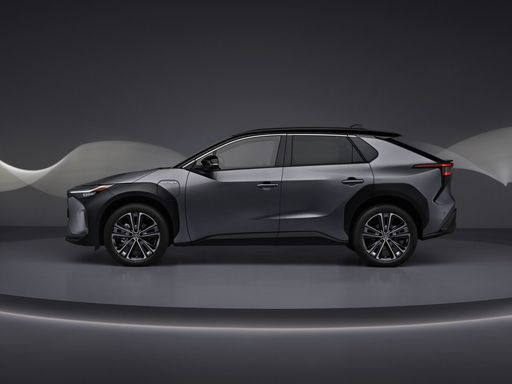
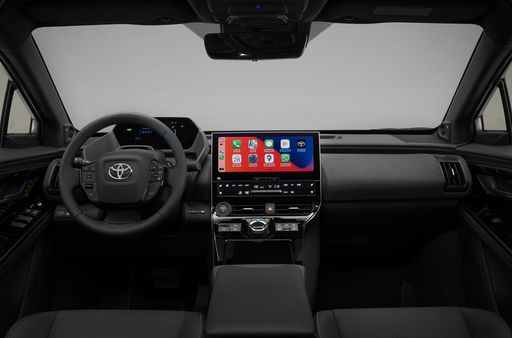
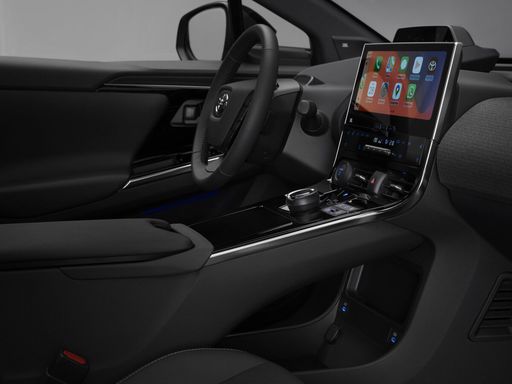
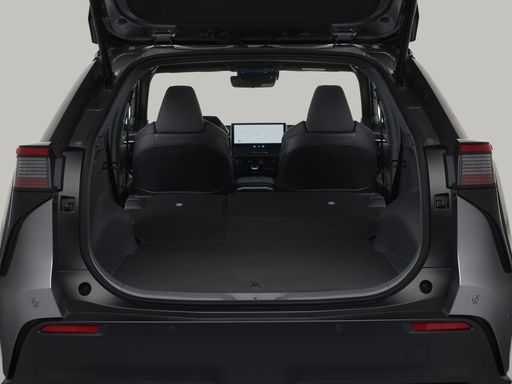
Costs and Consumption |
|
|---|---|
|
Price
47600 - 62700 £
|
Price
36800 - 48000 £
|
|
Consumption L/100km
-
|
Consumption L/100km
-
|
|
Consumption kWh/100km
14.9 - 18.2 kWh
|
Consumption kWh/100km
13.5 - 14.1 kWh
|
|
Electric Range
404 - 429 km
|
Electric Range
444 - 568 km
|
|
Battery Capacity
-
|
Battery Capacity
-
|
|
co2
0 g/km
|
co2
0 g/km
|
|
Fuel tank capacity
-
|
Fuel tank capacity
-
|
Dimensions and Body |
|
|---|---|
|
Body Type
SUV
|
Body Type
SUV
|
|
Seats
5
|
Seats
5
|
|
Doors
-
|
Doors
5
|
|
Curb weight
1955 - 2055 kg
|
Curb weight
2014 - 2180 kg
|
|
Trunk capacity
522 L
|
Trunk capacity
452 L
|
|
Length
-
|
Length
4690 mm
|
|
Width
1895 mm
|
Width
1860 mm
|
|
Height
-
|
Height
1650 mm
|
|
Max trunk capacity
-
|
Max trunk capacity
-
|
|
Payload
465 - 685 kg
|
Payload
375 - 451 kg
|
Engine and Performance |
|
|---|---|
|
Engine Type
Electric
|
Engine Type
Electric
|
|
Transmission
Automatic
|
Transmission
Automatic
|
|
Transmission Detail
Reduction Gearbox
|
Transmission Detail
Reduction Gearbox
|
|
Drive Type
Front-Wheel Drive, All-Wheel Drive
|
Drive Type
Front-Wheel Drive, All-Wheel Drive
|
|
Power HP
204 - 313 HP
|
Power HP
167 - 343 HP
|
|
Acceleration 0-100km/h
5.3 - 8 s
|
Acceleration 0-100km/h
5.1 - 8.6 s
|
|
Max Speed
-
|
Max Speed
140 - 160 km/h
|
|
Torque
266 - 432 Nm
|
Torque
268 - 338 Nm
|
|
Number of Cylinders
-
|
Number of Cylinders
-
|
|
Power kW
150 - 230 kW
|
Power kW
123 - 252 kW
|
|
Engine capacity
-
|
Engine capacity
-
|
General |
|
|---|---|
|
Model Year
2024
|
Model Year
2025
|
|
CO2 Efficiency Class
A
|
CO2 Efficiency Class
A
|
|
Brand
Lexus
|
Brand
Toyota
|
What drivetrain options does the Lexus RZ have?
The Lexus RZ is available as Front-Wheel Drive or All-Wheel Drive.
